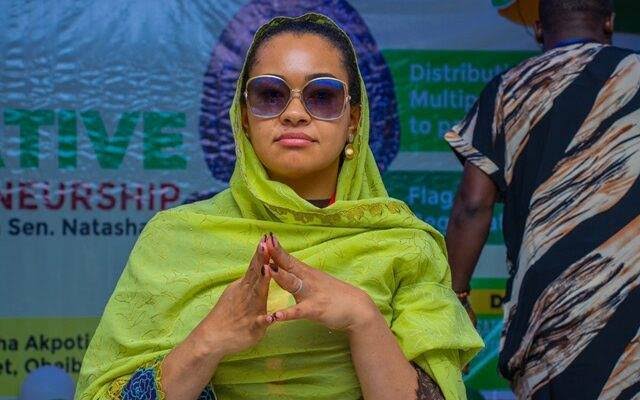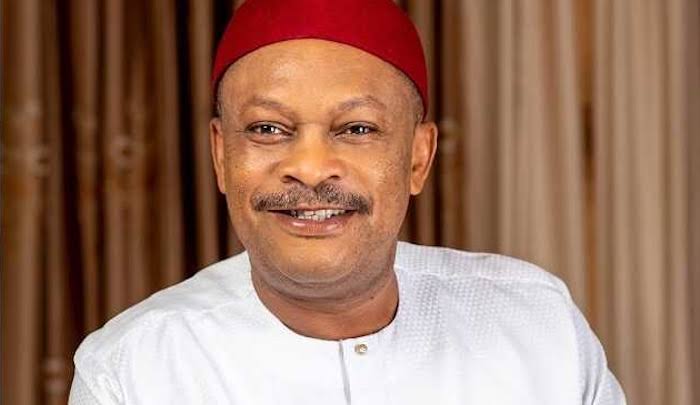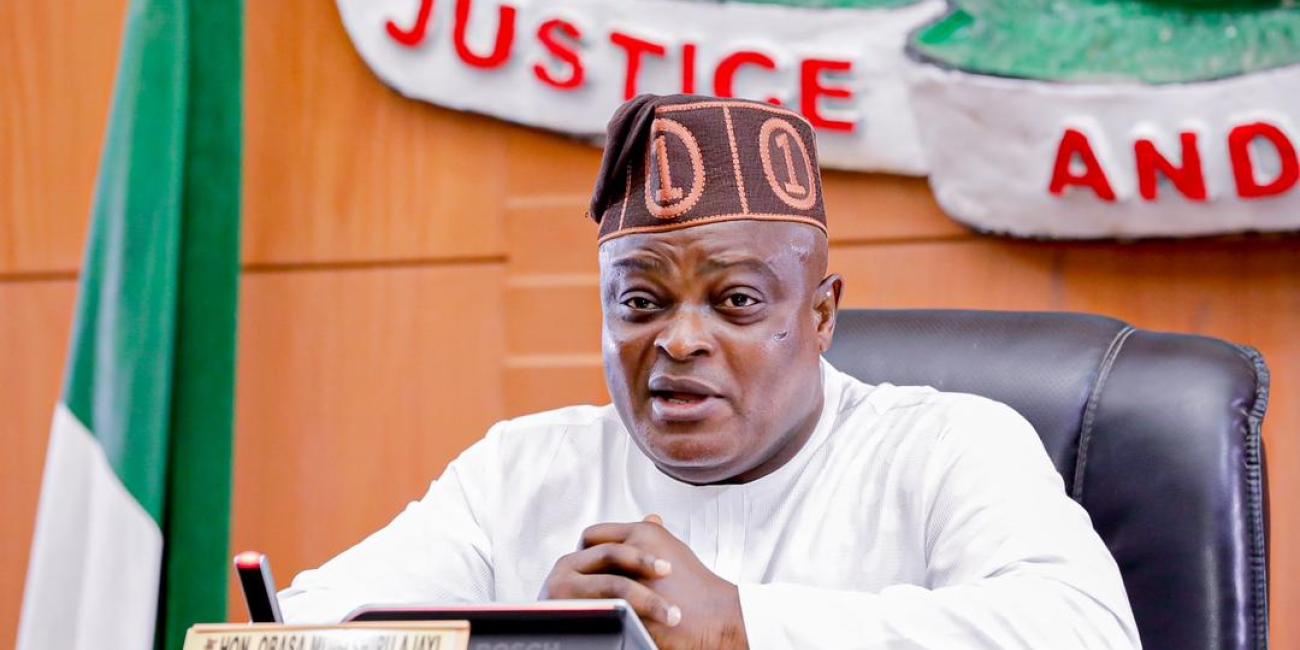The Federal High Court in Abuja on Wednesday, set aside its order of March 4, declaring the suspension of Sen. Natasha Akpoti-Uduaghan by the Senate as null and void.
Justice Obiora Egwuatu, in a ruling, vacated the suit after listening to the arguments of counsel for the plaintiff and lawyers to the defendants in the suit.
NAN reports that Justice Egwuatu granted Natasha’s five reliefs on March 4, including Order Number Four which declared any action taken by the defendants during the pendency of the suit as null, void and of no effect whatsoever.
The judge granted the five prayers after Sanusi Musa, SAN, who appeared for Natasha, moved the ex-parte motion marked: FHC/ABJ/CS/384/2025.
Natasha, who represents Kogi Central Senatorial District, had, in the motion ex-parte, sued clerk of the National Assembly (NASS) and the Senate as 1st and 2nd defendants.
She also named the President of the Senate, Federal Republic of Nigeria, and Sen. Neda Imasuem, who is the Chairman, Senate Committee on Ethics, Privileges and Code of Conduct as 3rd and 4th defendants respectively.
The senator had sought an order of interim injunction restraining the Senate’s committee headed by Imasuem from proceeding with the purported investigation against her for alleged misconduct sequel to the events that occurred at the plenary on Feb. 20, pursuant to the referral by the Senate on Feb. 25, pending the hearing and determination of the motion on notice for interlocutory injunction, among others.
However, the Senate, in a motion on notice filed on March 17 by its lawyer, Chikaosolu Ojukwu, SAN, had sought an order setting aside Order Number Four in the enrolled ex-parte order made by Justice Egwuatu against the defendants in Natasha’s suit.
The Senate, through Ojukwu, urged the judge to vacate the order in the interest of fair hearing.
Citing Action 36(1) of the constitution, the lawyer argued that order number four was interlocutory in nature and ought not to have been granted by the court.
He argued that the said Order Number Four was vague, ambiguous and lacking in specificity as it did not specify which of the parties it was targeted at or referring to and what actions it related to.
He akso argued that the order, in the form in which it was granted, “refers to all actions of whatever nature, without any limitation, taken by both the plaintiff/ respondent and the defendants.”
According to him, the law prohibits the granting of a vague order by a court of law.
He said the order, which was made exparte, was made to last until the determination of the suit.
“By Section 4 of the 1999 Constitution, the Senate of the Federal Republic of Nigeria is one of the Houses of the National Assembly established to make laws for the peace, order and good governance of the Federal Republic of Nigeria.
“That the said Order No. 4 of 4th March, 2025 as granted, effectively restrains the Senate of the Federal Republic of Nigeria from conducting any of its legislative duties in accordance with its constitutional functions.”
Ojukwu said enforcing the said order, as granted, would result in a constitutional crisis and anarchy, as the entire legislative duties of the Senate would be made to grind to a halt.
“The order offends the doctrine of separation of powers as enshrined in Section 4 of the 1999 Constitution of the Federal Republic of Nigeria.
“This honourable court lacks the jurisdiction to restrain parliament from conducting its constitutional duties,” he said.
He said it would be in the interest of justice to grant their application.
“It is my submission that the court has made an interlocutory order. The court cannot make an order that will affect the other parties before the end of the case,” he said.
The lawyer alleged that the court was misled into granting that order among other orders made.
According to him, the order will offend Section 36(1) which talks about fair hearing.
He therefore urged the court to hold that the entire proceedings of March 4 upon which that breach occured was in nullity.
Lawyer to the clerk, Charles Yoila; Kehinde Ogunwumiju, SAN, who appeared for Akpabio and Umeh Kalu, SAN, who represented Imasuem, aligned themselves with Ojukwu’s argument.
But counsel, who appeared for Natasha, Michael Numa, SAN, disagreed with their submissions.
He described their argument as the conspiracy of the defence.
“We filed an affidavit evidence of 12 paragraphs on March 18 in opposition to the motion on notice.
“It is accompanied by six exhibits marked as Natasha 1 to Natasha 6D, chronicling the event that happened,” he said.
The lawyer urged the court to dismiss the defence application and exercise its disciplinary powers on them for alleged contempt of the valid court order.
He argued that the defendants had, with audacity, disobeyed the order of the court.
While responding to the argument of Ojukwu, Numa submitted that “parties are bound by the prayers on the motion paper.”
He urged the court to discountenance the application.
The lawyer argued that the court must consider the entire orders in their ex-parte motion and not in piecemeal.
He said their argument was immaterial.
According to him, the Senate (2nd defendant) did not mention the propriety of Orders One, Two, Three and Five made by this honourable court.
“The fact that Order Four was made is only an ancillary order to give effect to the motion that until the matter is dispensed with,” he said.
Numa described the application by the defence as an affront on the court, that the judge should set aside the orders they had not challenged.
He said the defendants had not even addressed the order directing them to show cause within 72 hours upon the service of the order.
“This is an invitation to anarchy my lord,” he said, citing previous cases to back his argument.
“Whatever reservation they have, their only duty is to come to court. The order was that the respondents to come and show course
“Their application is self-defeating,” he argued.
Delivering the ruling, Justice Egwuatu agreed with the argument of the defence and set aside Order number Four from the prayers earlier granted.
The judge adjourned the matter until March 25 for hearing of all pending applications.









